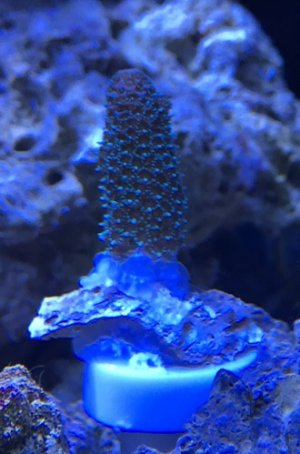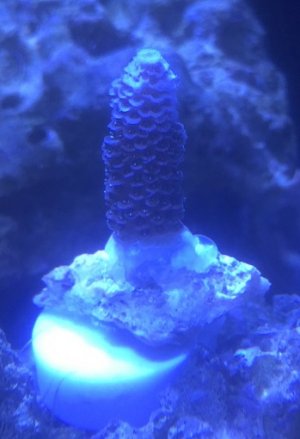Any acid will lower the alkalinity in seawater. If it's an acid with a counterion that is non-volatile, that reduction will be permanent. If it's an acid with a volatile counter-ion, the reduction will be temporary. An example of that last category is carbonic acid (i.e. "sparkling water") - there will be a dip in alkalinity and pH when it is added, but as the carbon dioxide that's the counter-ion in carbonic acid gets off-gassed, the alkalinity will come back up.
The remaining acids (ones with non-volatile counter-ions) can be further divided into two categories: mineral acids, and organic acids. Examples of mineral acids are hydrochloric and sulfuric; examples of common organic acids are vinegar (acetic acid) and citric acid.
For a reef tank, the issue with using organic acids is that you're essentially "carbon dosing" the seawater/tank, which might not be desirable if you're trying to increase nutrient levels.
So that leaves us with the mineral acids. Fortunately, seawater already contains the counter ions to hydrochloric and sulfuric acids in abundance, so there's no chance of a toxic reaction from the counter ion itself.
So, based on your comment about hydrochloric (muriatic) acid being difficult to obtain in Taiwan, I'd check to see if you can obtain sulfuric acid. It's typically sold as "battery acid". By the way - presuming there's no law against sales of hydrochloric acid to the public in Taiwan, another place to check for it would be a pool maintenance supply store - concentrated hydrochloric is typically used for pH control in chlorinated pools.


